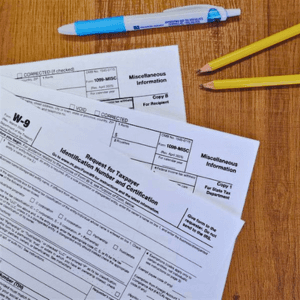Why the IRS Cares — and Why You Should Too
If you’ve always worked a W-2 job and now you’re earning income on the side — maybe repairing saddles, photographing Glacier weddings, or selling handmade goods — there’s one tax question you need to ask:
Is this a business... or a hobby?
That may sound like a technicality, but the difference can affect how much tax you owe, what you’re allowed to deduct, and whether you attract IRS attention.
Why the IRS Cares (And Why You Should Too)
Here’s the bottom line:
If it’s a business, you get to deduct expenses — like materials, mileage, tools, and even part of your home office.
If it’s a hobby, you still owe tax on every dollar you earn — but you can’t deduct any of what it cost you to earn it.
That means you could get taxed on money you never actually kept.
📌 Real Example:
You sell $6,000 worth of leather goods at local markets. You spend $4,000 on materials, tools, and booth fees.
If it’s a business, you’re taxed on $2,000 (net income).
If it’s a hobby, you’re taxed on the full $6,000 — with no write-offs.
And yes, that applies to your Montana return too, since the state bases its tax calculations on your federal income numbers. If you lose those deductions federally, you’ll feel it again on your state tax bill.
🧠 Bottom line: If you're spending real money to earn real income, how you classify your activity can make a big difference come tax time.
What Qualifies as a Deductible Business Expense?
If the IRS considers your activity a business, you can typically deduct:
Expense Type | Examples |
Materials & Supplies | Leather, beads, packaging, feed |
Marketing & Sales | Website costs, logos, booth fees |
Business Use of Home | Portion of rent, internet, utilities if used for the work |
Travel & Mileage | Trips to fairs, vendors, deliveries |
Tools & Gear | Cameras, welding rigs, sewing machines |
Software & Services | Square fees, Etsy seller tools, bookkeeping, tax prep |
But you must be operating with the intent to earn profit.
What the IRS Looks At: The 9-Factor Test
The IRS doesn’t rely on one thing — it considers nine factors. You don’t need a perfect score, but the more you can answer “yes” to, the better your position.
Factor | What It Means | Example |
1. Records | You track income and expenses, maybe have a separate bank account. | You save receipts and keep a spreadsheet for booth costs. |
2. Effort | You work regularly and intentionally. | You spend evenings prepping goods and weekends selling. |
3. Income Matters | You use it to pay bills or reinvest. | Your snowmobile repair income helps cover winter costs. |
4. Short-Term Losses | You expect losses at first but aim for profit. | Year 1 was in the red, but you bought better tools for next season. |
5. Adaptability | You adjust what’s not working. | You stopped selling at one market and moved online. |
6. Experience | You’ve done this kind of work before. | You grew up in a shop and now build custom tack part-time. |
7. Profit History | You’ve made money in 3 of the last 5 years (2 of 7 for horse-related work). | Your taxidermy side gig turned a profit for 3 years straight. |
8. Asset Appreciation | Your business tools or inventory grow in value. | Your trained stock colt is worth more now than when purchased. |
9. Fun vs. Intent | It’s not just for fun — profit is the goal. | You enjoy it, sure — but you’re pricing for growth, not just hobby joy. |
If you're acting like a business — and treating it like one — you're on stronger ground with the IRS.
Hobby vs. Business: How It Affects Your Taxes
Type | Where It’s Reported | Can You Deduct Expenses? | Pays SE Tax? |
Business | Schedule C | ✅ Yes | ✅ Yes |
Hobby | Schedule 1, Line 8z | ❌ No | ❌ No |
SE tax (self-employment tax) is roughly 15.3%, but you only owe it if you’re claiming business income. The upside? You also get deductions that reduce both federal and state tax.
Local Example: Molly’s Cotton Candy Stand

Photo by Amber VanSetten
Take Molly’s summer setup: her cotton candy booth, Sweet & Sassy, pops up at parks, parades, rodeos, and events. She charges real prices, buys sugar and cones in bulk, and even has signage. She reinvests in equipment and new flavors each year.
Even though it’s part-time, it’s a business — because it’s structured like one.
Whether you’re selling beadwork, beef, firewood, or photography — if you’re treating it like a business, the IRS is more likely to see it that way.
What Raises Red Flags?
Even honest taxpayers can run into trouble if they:
Don’t use a separate account for business funds
Claim big deductions on items with mixed personal use (trucks, horses, cameras)
Show years of losses without changing approach
Report income and expenses inconsistently
Clean records, real effort, and a clear goal of profit go a long way.
Not Sure Where You Stand? Let’s Clarify It.
If you're asking "does this count as a business?" — that’s a conversation worth having now, not next March.
📅 Set up a short appointment and we’ll walk through your situation. We’ll help you:
Understand where you stand
Set up simple recordkeeping
Know what to expect at tax time
Clarity beats surprises.
Swanson Agency Montana Roots. Future Focused.
📍Serving ag producers, creatives, and side-hustlers across Big Sky Country
Clear Thinking. Straight Talk. That’s our job — so you can focus on yours.


Sandra Vasquez
Last -Minute Tax Steps for Montana Small Businesses
Get your small business ready for year-end with a practical checklist covering expenses, payroll, deductions, retirement contributions, and clean recordkeeping to set up a smooth and accurate 2025 tax filing.


Bjorn Swanson
Quick 2025 1099 Guide for Montana Businesses & Ranchers
Learn the 2025 1099 rules every Montana business and ranch needs to follow—from who gets a form to what payments qualify—so you can file accurately, stay compliant, and avoid January surprises.


Bjorn Swanson
2026 Tax Outlook: What Montana’s New Laws Mean for Your Family and Business
New year, new tax rules. Montana’s 2026 reforms promise simplicity, but not everyone will save. Find out what the changes mean for your household and business.



